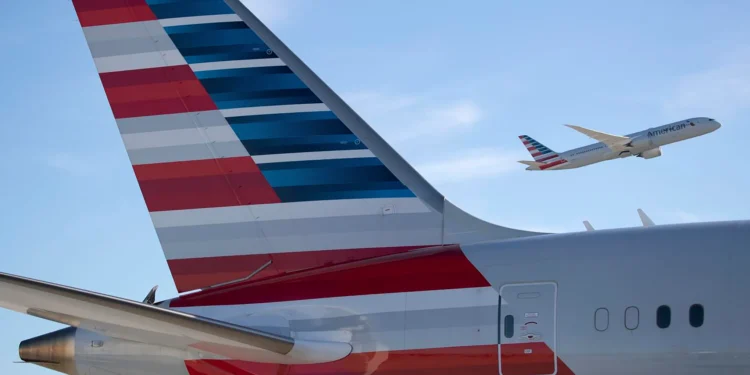A federal jury awarded more than $9.6 million to a California chef and his wife after determining American Airlines employees failed to follow company medical emergency protocols when he suffered two strokes during an international flight.
Jesus Plasencia, 67, from Watsonville, was traveling with his wife Ana Maria Marcela Tavantzis on a November 2021 flight from Miami to Madrid when he experienced a “mini stroke” while the plane was still at the gate, according to court documents filed in 2023.
Plasencia temporarily lost his ability to speak and use his phone during the initial episode. His wife immediately alerted flight attendants and the pilot, but rather than following company medical protocols, the pilot “dismissed her concerns, joked with Plasencia, and cleared him for take-off,” according to the lawsuit.
During the eight-hour flight, Plasencia suffered a full stroke while airborne. The flight crew asked other passengers to monitor him but failed to inform the pilot of the medical emergency, preventing a potential flight diversion for immediate medical care.
Plasencia was hospitalized in critical condition for more than three weeks after landing in Spain. He now cannot speak or write and requires around-the-clock in-home care and intensive rehabilitation, according to court documents.
The San Jose federal jury concluded Thursday that American Airlines was liable for $9.6 million under the Montreal Convention, an international treaty governing air travel, after determining the crew’s protocol failures delayed Plasencia’s medical treatment by nearly eight hours.
Darren Nicholson of Burns Charest, representing the couple, argued the airline ignored stroke protocols requiring immediate medical assistance and aircraft diversion. “It is shocking that American Airlines responded so poorly to a medical emergency like this,” Nicholson said.
The plaintiffs contended that proper protocol adherence could have resulted in better medical outcomes for Plasencia by ensuring faster access to stroke treatment during the critical early hours following onset.
American Airlines disputed the verdict while acknowledging passenger safety priorities. “The safety and well-being of our passengers is our highest priority,” the airline stated. “While we respect the jury’s decision, we disagree with the verdict and are currently evaluating next steps.”
The case highlights airline responsibilities during in-flight medical emergencies and the potential consequences when crews fail to follow established medical response procedures. Airlines typically maintain detailed protocols for handling various medical situations, including stroke symptoms that require immediate intervention.
The substantial jury award reflects the severity of Plasencia’s condition and the life-altering impact of his injuries, which have left him completely dependent on caregivers for daily activities.
The verdict demonstrates how international aviation law holds airlines accountable for crew decisions during medical emergencies, particularly when company protocols exist but are not properly implemented.







